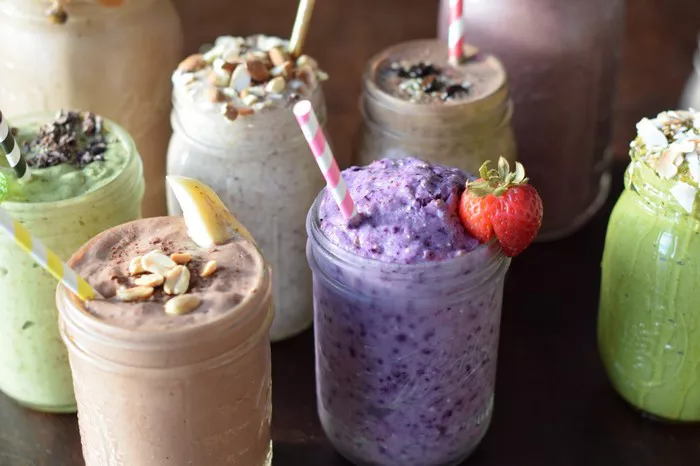Seasonal allergies, also known as hay fever or allergic rhinitis, are a common condition that affects millions of people worldwide. These allergies can cause a variety of symptoms, including sneezing, itching, runny nose, and watery eyes. But what exactly causes these seasonal reactions? In this article, we will explore the underlying mechanisms of seasonal allergies, the factors that contribute to their onset, and effective strategies for managing them.
The Immune System’s Role in Allergies
To grasp why we experience seasonal allergies, it’s essential first to understand how the immune system functions. The immune system is our body’s defense mechanism against harmful substances, such as bacteria, viruses, and toxins. However, in the case of allergies, the immune system mistakenly identifies harmless substances—like pollen, mold spores, or dust mites—as threats.
The Allergic Response
When the immune system encounters an allergen, it responds by producing antibodies known as Immunoglobulin E (IgE). These antibodies bind to the allergen and trigger the release of chemicals, such as histamine, from certain cells in the body. Histamine is the primary culprit behind the classic symptoms of allergies: inflammation, itching, and mucus production. This reaction is meant to protect the body, but in the case of seasonal allergies, it’s an overreaction to a benign substance.
What Triggers Seasonal Allergies?
Seasonal allergies are typically triggered by airborne allergens that are more prevalent at certain times of the year. These allergens include pollen from trees, grasses, and weeds, as well as mold spores.
Pollen: The Primary Culprit
Pollen is the most common trigger of seasonal allergies. Pollen is a fine powder released by plants as part of their reproductive process. Different types of plants release pollen at different times of the year, which is why seasonal allergies are most noticeable in spring, summer, and fall.
Spring Allergies: In the spring, trees like oak, birch, cedar, and pine release large amounts of pollen. This is often the start of the allergy season for many people.
Summer Allergies: During the summer, grasses like Bermuda, Timothy, and Kentucky bluegrass are the main pollen producers. These grasses are common triggers for people with seasonal allergies.
Fall Allergies: In the fall, weeds like ragweed, sagebrush, and pigweed become the dominant pollen producers. Ragweed is particularly notorious for causing severe allergic reactions.
Mold Spores: An Overlooked Allergen
Mold spores are another common trigger of seasonal allergies, especially in the late summer and fall. Mold thrives in damp, dark environments, such as piles of fallen leaves, compost heaps, and soil. When disturbed, mold spores can become airborne and inhaled, leading to an allergic response.
Climate and Weather Influences
The severity of seasonal allergies can also be influenced by climate and weather conditions. For example, a mild winter can lead to an early start to the pollen season, while heavy rainfall can promote mold growth. Windy days can spread pollen and mold spores over long distances, increasing exposure to these allergens.
See Also: Why Do We Get Spring Allergies?
Why Do Some People Get Seasonal Allergies While Others Don’t?
Not everyone develops seasonal allergies, which begs the question: why do some individuals react so strongly to airborne allergens while others remain unaffected?
Genetic Predisposition
One of the most significant factors contributing to seasonal allergies is genetic predisposition. If you have a family history of allergies, asthma, or eczema, you are more likely to develop seasonal allergies yourself. This genetic link is related to the tendency to produce higher levels of IgE antibodies in response to allergens.
Environmental Factors
Environmental factors play a crucial role in the development of seasonal allergies. Exposure to allergens at an early age, pollution, and lifestyle choices can all influence whether or not a person develops allergies. For example, children who grow up in urban areas with high pollution levels are more likely to develop allergies compared to those in rural areas.
Hygiene Hypothesis
The hygiene hypothesis is a theory that suggests the rise in allergic conditions in developed countries may be due to a lack of exposure to infectious agents, bacteria, and parasites during childhood. The idea is that living in an overly clean environment may prevent the immune system from developing properly, leading to an increased risk of allergies.
Symptoms of Seasonal Allergies
The symptoms of seasonal allergies can vary in intensity from person to person, but they generally include:
Sneezing: Often one of the first signs, sneezing is a reflex action triggered by the irritation of the nasal passages.
Runny or Stuffy Nose: Increased mucus production can lead to a runny nose, while inflammation can cause nasal congestion.
Itchy Eyes, Nose, or Throat: Histamine release can cause itching in these areas, which can be particularly bothersome.
Watery Eyes: The eyes may produce more tears in an attempt to flush out the allergens.
Coughing: Postnasal drip, where mucus drips down the back of the throat, can lead to coughing.
Fatigue: The overall discomfort and the body’s ongoing immune response can result in feelings of fatigue.
In severe cases, seasonal allergies can also trigger asthma attacks, especially in individuals with a history of asthma.
Diagnosis of Seasonal Allergies
If you suspect you have seasonal allergies, it’s essential to get a proper diagnosis. This can be done through a combination of medical history, physical examination, and allergy testing.
Medical History and Examination
Your healthcare provider will ask about your symptoms, their timing, and any potential triggers. They may also perform a physical examination to look for signs of allergies, such as nasal congestion or swollen nasal passages.
Allergy Testing
Allergy testing can be done in several ways:
Skin Prick Test: This is the most common type of allergy test. A small amount of the suspected allergen is pricked into the skin, usually on the forearm or back. If you’re allergic, you’ll develop a small, raised bump at the test site.
Blood Test: A blood test can measure the levels of IgE antibodies to specific allergens in your blood. This test is often used when skin testing is not possible or practical.
Challenge Testing: In some cases, a controlled exposure to the suspected allergen may be done to observe your reaction.
Managing and Treating Seasonal Allergies
While there is no cure for seasonal allergies, there are several strategies to manage and reduce symptoms effectively.
Avoiding Allergens
The most effective way to manage seasonal allergies is to avoid exposure to allergens whenever possible. Here are some practical tips:
Monitor Pollen Counts: Stay informed about daily pollen counts in your area, and try to stay indoors on days when counts are high.
Keep Windows Closed: Keep windows closed during peak pollen seasons to prevent allergens from entering your home.
Use Air Purifiers: Consider using HEPA air filters in your home to reduce airborne allergens.
Shower After Outdoor Activities: Shower and change clothes after spending time outside to remove pollen from your skin and hair.
Wear Sunglasses and a Hat: Wearing sunglasses and a hat can help protect your eyes and face from pollen.
Medications for Seasonal Allergies
Several overthecounter and prescription medications can help manage the symptoms of seasonal allergies:
Antihistamines: These medications block the effects of histamine, reducing symptoms like sneezing, itching, and runny nose. Common options include cetirizine (Zyrtec), loratadine (Claritin), and fexofenadine (Allegra).
Decongestants: Decongestants like pseudoephedrine (Sudafed) can help relieve nasal congestion. However, they should be used with caution, as they can cause side effects like increased blood pressure.
Nasal Corticosteroids: Nasal sprays like fluticasone (Flonase) and mometasone (Nasonex) reduce inflammation in the nasal passages, providing relief from congestion and other symptoms.
Leukotriene Modifiers: These medications, such as montelukast (Singulair), block the action of leukotrienes, chemicals that contribute to allergy symptoms.
Allergy Shots (Immunotherapy): For longterm relief, some people may benefit from allergy shots, which gradually desensitize the immune system to specific allergens.
Natural Remedies for Seasonal Allergies
In addition to conventional treatments, some people find relief from seasonal allergies through natural remedies:
Saline Nasal Irrigation: Using a saline solution to rinse your nasal passages can help remove allergens and reduce congestion.
Butterbur: Butterbur is a herbal supplement that has shown promise in reducing allergy symptoms.
Quercetin: Quercetin is a natural flavonoid found in many fruits and vegetables. It may help stabilize mast cells and reduce histamine release.
Probiotics: Some studies suggest that certain probiotics may help modulate the immune system and reduce the severity of allergy symptoms.
Lifestyle Adjustments
Making some lifestyle adjustments can also help manage seasonal allergies:
Stay Hydrated: Drinking plenty of water helps thin mucus and keep your respiratory system moist, reducing irritation.
Maintain a Healthy Diet: A diet rich in fruits, vegetables, and omega3 fatty acids can support a healthy immune system and reduce inflammation.
Exercise Regularly: Regular exercise can help improve lung function and reduce the severity of allergy symptoms. However, it’s best to exercise indoors during peak pollen times.
Manage Stress: Stress can worsen allergy symptoms, so practicing relaxation techniques like meditation or yoga can be beneficial.
LongTerm Outlook and Prevention
While seasonal allergies can be a recurring issue, they can often bemanaged effectively with the right strategies. Over time, some people may find that their allergies improve or change, while others may develop new sensitivities.
Desensitization Therapy
Desensitization, or allergy immunotherapy, is a longterm treatment that involves gradually exposing the body to increasing amounts of the allergen. This process helps the immune system become less reactive to the allergen over time. While this treatment can be timeconsuming and requires regular visits to a healthcare provider, it can provide longlasting relief for those with severe allergies.
Emerging Treatments and Research
Ongoing research is exploring new treatments and strategies for managing seasonal allergies. These include new forms of immunotherapy, biologics that target specific immune responses, and improved diagnostic tools to better identify and manage allergies.
Conclusion
Seasonal allergies are a common but manageable condition. By understanding the underlying causes and triggers, individuals can take proactive steps to reduce their exposure to allergens and manage symptoms effectively. With a combination of lifestyle adjustments, medications, and natural remedies, it’s possible to enjoy the changing seasons without being overwhelmed by allergy symptoms. Whether you’re a lifelong allergy sufferer or experiencing symptoms for the first time, there are plenty of options available to help you breathe easier and feel better yearround.
[inline_related_posts title=”You Might Be Interested In” title_align=”left” style=”list” number=”6″ align=”none” ids=”3906,883,2699″ by=”categories” orderby=”rand” order=”DESC” hide_thumb=”no” thumb_right=”no” views=”no” date=”yes” grid_columns=”2″ post_type=”” tax=””]
































